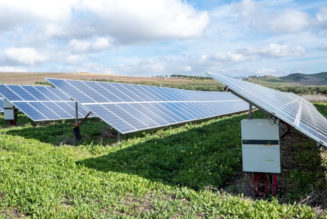Authorities in the Kingdom of eSwatini (formerly Swaziland), the last absolute monarchy on the African continent, have ordered network providers in the country to cut off access to the internet as nationwide pro-democracy protests rock the small landlocked country.
ESWATINI GOVT orders major network providers to cut internet connection, closes schools, imposes 6pm-5am curfew as protests continue. pic.twitter.com/wtMIEzte6u
— Nation Breaking News (@NationBreaking) June 29, 2021
Demonstrations against the country’s absolute monarchy began during the weekend, with protests turning increasingly violent seemingly overnight on Tuesday. Multiple sources reported that security forces have been using live ammunition and shooting teargas to disperse the democracy-seeking protesters.
Videos of eSwatini citizens burning tires and cars have emerged on social media. Below are just a few examples. A quick Twitter search of “eSwatini” reveals many more videos allegedly showing extreme examples of violence from protestors and law enforcement.
Many videos are claiming that citizens are being killed or brutalised by law enforcement. Eight people have allegedly been killed so far during clashes between protestors and police, with a further 28 reported to be critically injured.
Protestors block roads in Manzini, King Mswati’s Government blocks internet to control situation. pic.twitter.com/Pk9ao9duio
— Swazi News (@SwaziNews) June 29, 2021
Eswatini protestors now operating at night burning businesses linked to King Mswati and Government properties. This was after the King issued an order to the army to shot the citizens who are demanding democracy.
Chaos is intensifying in Matsapha and other towns. pic.twitter.com/vXVEaM1lc3— Swazi News (@SwaziNews) June 29, 2021
Protesters against King Mswati of Swaziland (Eswatini) have burnt shops in Matsapha.
Retail outlets are on fire as
pro-democracy protests spiral out of control.This comes after King Mswati issued a decree banning delivery of petitions.
The government is an absolute monarchy. pic.twitter.com/AFGOBnt3Ci
— Hopewell Chin’ono Today (@daddyhope) June 28, 2021
The government of eSwatini has also imposed a strict curfew (18:00 to 05:00) in efforts to squash the mass protests. Schools are suspended and businesses have been ordered to close operations by 15:30. Banks are also closed until the unrest in the country begins to dissipate.
MTN Confirms Internet Outages
MTN eSwatini confirms that the organisation is currently experiencing disruption to services and connectivity as of 29 June 2021.
“Meeting our customers’ needs remain a key priority for us. We are committed to restoring our services and connectivity as soon as possible, we encourage all our customers to make use of the various self-service offerings through our digital platforms,” says MTN eSwatini CEO Wandile Mtshali.
“As a precaution, we are exploring all necessary measures to ensure the safety of our customers, staff and partners. We will monitor the situation and keep our customers updated on all relevant developments,” concludes Mtshali.
MTN eSwatini says that the entity will engage with “relevant stakeholders and authorities to mininise and limit the duration [of the outage].”
A Common Occurrence
TechCabal reports that African countries have, over the years, been plagued by social media and internet shutdowns in efforts to quell dissent before elections or in response to protests against governments.
Between January 2020 and February 2021, internet and social media blackouts were imposed in Uganda, Chad, Tanzania, and Ethiopia. Nigeria restricted access to Twitter on 4 June 2021, albeit under different circumstances.
Blocking access to social media or the internet are direct efforts at curtailing rights to freedoms of expression. Social media bans also impede protesters from organising.
By Luis Monzon
Follow Luis Monzon on Twitter
Follow IT News Africa on Twitter









